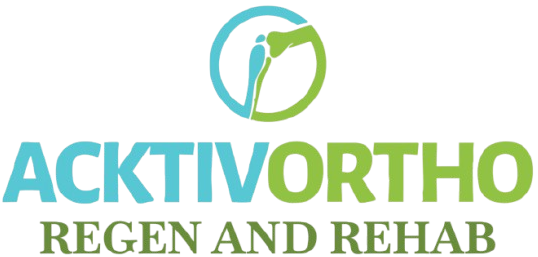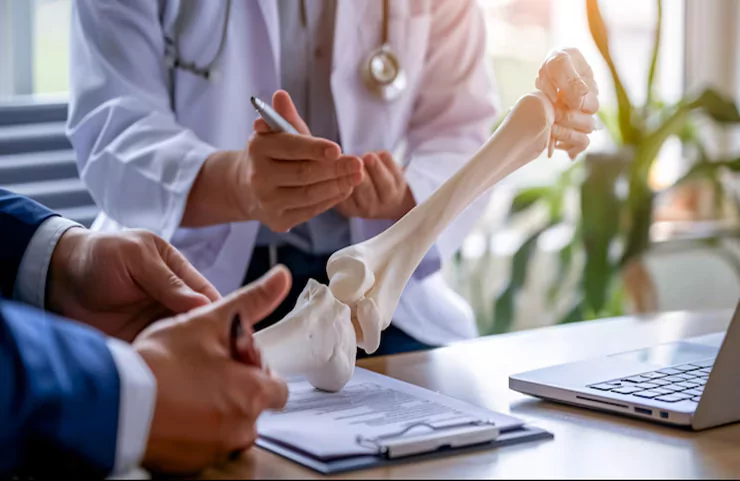How to Keep Your Bones Strong After 50: Advice from an Orthopedic Doctor in Thane
If you’re in your 50s or beyond, you may have noticed some changes in your body. Maybe your knees ache a little when you climb stairs. Or perhaps you’ve started feeling more tired and stiff after a short walk. You might even be worrying about a fall or fracture. If this sounds familiar, you’re not alone.
As we grow older, it’s natural for our bones to lose some of their strength. But here’s something many people don’t realize: growing older doesn’t mean your bones have to break down. With the right care, your bones can stay strong and healthy well into your 70s and beyond.
In this article, I’ll Walk you through how to care for your bones after 50, what signs to watch out for, and practical steps you can start today for a stronger, more active life.
A Trusted Voice for Bone & Joint Health in Thane
I’m Dr. Saikat Jena, an orthopedic surgeon based in Thane. I specialize in joint replacement, sports injuries, and complex trauma surgeries. Over the past 10 years, I’ve performed over 400 joint surgeries each year, helping patients regain movement, strength, and confidence.
My training includes fellowships from the UK, Germany, and Portugal, but most importantly, my real learning has come from listening to and caring for hundreds of patients just like you people who want to stay active, avoid injuries, and enjoy life without bone and joint problems.
Why Bone Health Becomes More Important After 50
Once you cross 50, your body starts going through changes that can make bones weaker. For women, this usually starts after menopause due to a drop in estrogen, a hormone that helps keep bones strong. Men also lose bone density, just a bit more slowly.
This natural loss of bone strength is called osteopenia. If it becomes more severe, it’s called osteoporosis a condition where bones become fragile and can easily break, even from a small fall or bump.
What many people forget is that your bones support everything your posture, your joints, your balance, and your freedom to move. If your bones are weak, it can start to affect your entire life.
How Keeping Your Bones Strong Can Help You
Taking care of your bones now can do a lot more than just prevent fractures. It can:
- Keep your posture upright and help avoid that hunched back that many associate with aging.
- Reduce pain in your knees, hips, and spine.
- Give you better balance and prevent falls.
- Help you stay active and independent for years to come.
- Make recovery easier and faster if you ever do need surgery.
Why it’s Better to Take Action Early
Many of the bone problems we see in older adults like hip fractures, knee replacements, or spine issues could have been prevented with early care. It’s much easier (and less expensive) to strengthen your bones now than to repair them later after an injury.
In other words, prevention is not just better. It’s smarter.
What You Can Do to Strengthen Your Bones After 50
The good news is, you don’t need a complicated plan. Even with small daily steps, you can make a big difference to your bone health.
Start with your diet. Your bones need calcium to stay strong, so include foods like dairy (milk, curd), leafy greens like spinach, almonds, and sesame seeds. If you’re not eating enough calcium-rich foods, your doctor might suggest supplements.
Vitamin D helps your body absorb calcium. Try to spend 15 to 30 minutes in morning sunlight every day, and consider a vitamin D test to check your levels.
Exercise plays a key role too. Any weight-bearing activities like walking, light strength training, or yoga can signal your bones to grow stronger. If you’ve never exercised before, even a 20-minute daily walk is a great place to start.
Also remember to avoid things that weaken your bones like smoking and heavy drinking. These interfere with calcium levels in your body and can make your bones brittle over time.
Above all, get your bones checked. A simple Bone Mineral Density (BMD) test can reveal whether you have any early signs of osteoporosis. It’s painless, quick, and available at most diagnostic centers.
Are You at Risk of Weak Bones?
You should pay special attention to your bone health if any of the following apply to you:
- You’re postmenopausal.
- You’ve had a fracture before.
- There’s a family history of osteoporosis.
- You have low body weight or poor nutrition.
- You don’t get much sunlight or spend a lot of time indoors.
- You take medicines like thyroid, steroid, or anti-epileptic drugs.
Even if you don’t have any major risk factors, it’s still a good idea to do a basic bone health check once you cross 50.
What Happens When You Actually Follow This Advice?
Many of my patients who take bone health seriously after 50 tell me they feel stronger, lighter, and more confident in their bodies. They find it easier to move around, climb stairs comfortably, enjoy their evening walks again, and live free from the fear of falling or hurting themselves.
And if they ever do need joint surgery or physiotherapy, their recovery tends to be much faster when they already have good bone density and muscle strength.
But Are There Any Downsides?
Most of the tips I’ve shared are natural and safe. But just like with anything related to your health, they need to be done the right way.
Some people take excess calcium or vitamin D without checking their blood levels, which can cause problems like kidney stones or stomach issues. Others jump into exercise routines without warming up or taking their joint condition into account.
So, it’s always better to talk to a doctor before starting any new supplement or major routine.
What About Popular Alternatives Like Ayurveda or Online Supplements?
Many people today explore alternative treatments or herbal remedies. While some of these may be harmless, they shouldn’t replace medical advice especially not for something as serious as bone health. Feel free to use them alongside, but not in place of, proper orthopedic evaluation.
Backed by medical evidence and thousands of patients over the years, bone strength and mobility can be improved most effectively through structured diet, specific exercises, and medical guidance when needed.
What Does it All Cost?
For those living in and around Thane, here’s a general idea of what you might expect to spend:
- Bone density scan: usually between ₹1,500 to ₹2,500
- Orthopedic consultation: ₹500 to ₹1,000
- Monthly bone supplements: ₹300 to ₹700
- Blood tests for Vitamin D & calcium: ₹600 to ₹1,000
If you start early, these affordable measures can help you avoid costly surgeries or recovery after an injury later in life.
Simple Habits to Start at Home Today
Spend more time in the sun even a short walk before 10 AM can help your body produce vitamin D naturally. Include calcium-rich food in every meal. Cut back on too much salt and sugar, and if you smoke, consider quitting. Try gentle stretches or beginner yoga for 15 minutes each morning.
These small changes, when done consistently, can add up to stronger bones and better health.
Do You Need to Stay in a Hospital for This?
Not at all. Most bone health services from tests to treatment are done on an outpatient basis. You can do everything from the comfort of your home or a nearby clinic. Only if a fracture or surgery is involved would hospitalization be needed.
Why Patients Trust Our Care at Acktiv Ortho, Thane
At our clinic in Kasarvadavali, Thane West, I work with patients from all walks of life from retired seniors to athletes recovering from injuries. Whether you’re seeking advice, a joint scan, or advanced care, we focus on one thing: helping you stay active, healthy, and pain-free.
With advanced training, minimally invasive techniques, and real compassion, we’re here to support you at every stage of your bone and joint health.
In Summary: It’s Never Too Late to Strengthen Your Bones
Strong bones aren’t just about avoiding falls they’re about giving yourself the freedom to enjoy life without limits. By taking a few simple steps today, you can protect your independence, whether that’s playing with your grandchildren, going on morning walks, or simply climbing stairs without pain.
And remember, you don’t have to do it alone. We’re here to guide you through every step.
Ready to Take the First Step?
If you’re over 50 and care about your bone health, don’t wait until pain or injury forces you to act.
Let us help you prevent problems before they start.
Call Dr. Saikat Jena at +91-9967063812
Visit Acktiv Ortho, Kasarvadavali, Thane West
Book online at www.acktivortho.com
Or email us at: acktivortho@gmail.com
Common Questions People Ask About Bone Health After 50
Q1. When should I check my bone health?
Ideally after age 50. Especially if you’re a woman or have any risk factors like fractures or family history.
Q2. Can weak bones cause joint pain?
Yes, if bones are weakening, it can affect the joints and cause pain in the knees, hips, or back.
Q3. How much calcium do I need every day?
Most adults need about 1,000–1,200 mg of calcium daily.
Q4. Is osteoporosis serious?
Yes. It can make your bones so fragile that a minor fall could lead to a major fracture.
Q5. Can exercise help?
Absolutely. Even basic walking or light workouts can strengthen bones and improve balance.
Q6. Do men need to worry about this too?
Yes, men also lose bone density with age, though it may happen a bit slower.
Q7. Is it too late to start if I’m already in my 60s?
No. It’s never too late to improve your bone health — many patients see benefits even when they start later in life.
Q8. Are supplements enough on their own?
No. They should be combined with a healthy diet, sunlight, and exercise.

